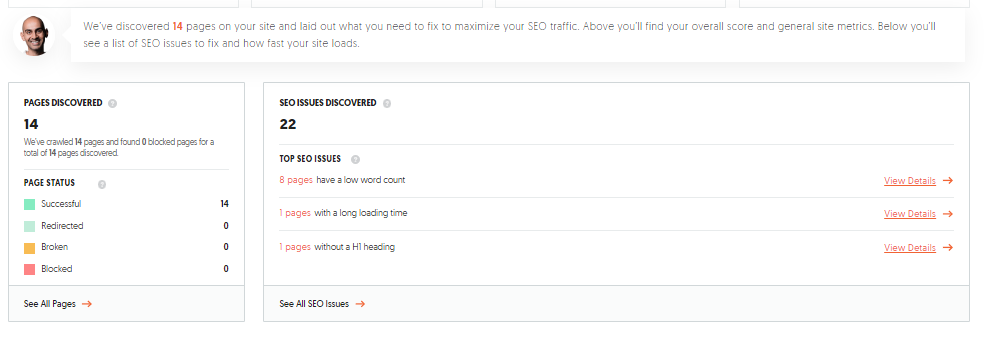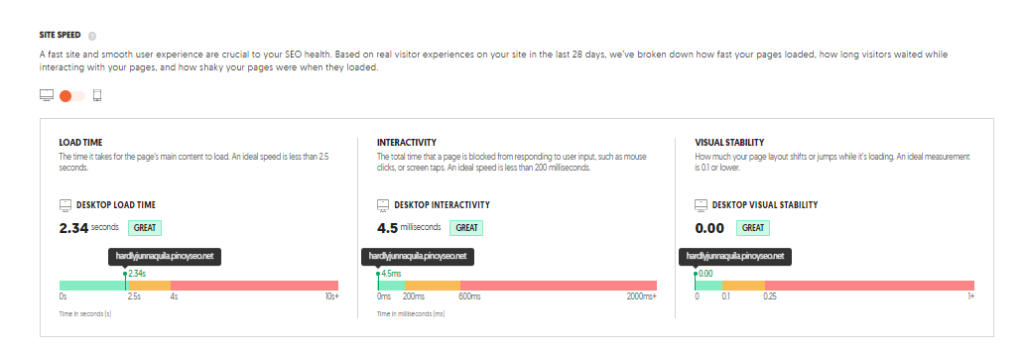On-Page SEO Optimization: Elevating Your Digital Presence
The visibility of your website to search engines and, consequently, your target audience, is a determining factor in your online success. While many aspects contribute to this visibility, On-Page SEO Optimization stands as one of the cornerstones.
What is On-Page SEO Optimization?
On-Page SEO Optimization refers to the practice of optimizing individual web pages to rank higher in search engine results pages (SERPs) and earn more organic traffic. Unlike Off-Page SEO, which focuses on external factors like backlinks, On-Page SEO is all about optimizing elements on your website itself. These elements encompass a wide range of factors that collectively contribute to your website’s search engine ranking.
The Core Strategies of On-Page SEO Optimization:
- Keyword Optimization: Keywords are the foundation of On-Page SEO. Thorough keyword research and strategic placement in your content, titles, headings, and meta descriptions are vital for signaling to search engines what your page is about.
- High-Quality Content: Content is king in the digital realm. Crafting informative, engaging, and relevant content not only satisfies user intent but also attracts search engine attention. It’s essential to focus on content quality, readability, and uniqueness.
- Title Tags and Meta Descriptions: Optimizing title tags and meta descriptions with relevant keywords not only impacts click-through rates but also helps search engines understand the content’s context.
- Header Tags (H1, H2, H3, etc.): Properly structuring your content with header tags not only makes it more readable for users but also aids search engines in understanding the hierarchy and importance of content sections.
- URL Structure: A clean and concise URL structure that incorporates keywords can improve the overall SEO-friendliness of your web pages.
- Internal Linking: Strategically linking to other relevant pages within your website helps users navigate and discover more content while distributing link authority effectively.
- Image Optimization: Optimizing images with descriptive alt text and reducing file sizes enhances user experience and can contribute to higher rankings in image search results.
Why On-Page SEO Optimization Matters:
- Improved Visibility: Effective On-Page SEO practices improve your website’s visibility in search results, leading to increased organic traffic.
- Enhanced User Experience: Elements like quality content, clear structure, and fast-loading pages contribute to a better user experience, reducing bounce rates and encouraging longer visits.
- Competitive Edge: In a crowded digital space, On-Page SEO sets you apart from competitors by ensuring your content is not only valuable but also highly discoverable.
- Higher Conversion Rates: A well-optimized page is more likely to convert visitors into leads or customers, boosting your website’s overall effectiveness.
- Measurable Results: On-Page SEO allows for precise tracking and measurement of the impact of your optimizations, helping you make data-driven decisions for continuous improvement.


On-Page SEO Optimization is the cornerstone of a successful digital presence. It involves a range of strategies and practices that, when executed effectively, lead to higher search engine rankings, increased organic traffic, and ultimately, a more influential online presence. By implementing On-Page SEO best practices, you not only enhance your website’s visibility but also create a user-friendly, content-rich environment that resonates with both search engines and your target audience.
Book a FREE website audit today with Hardly!
Reach the right audience by optimizing your website! Conducting a website audit helps to determine whether or not your website is optimized. This is crucial to achieve the traffic goals and examine the page performance and fix if there are any issues to any pages of your website.
